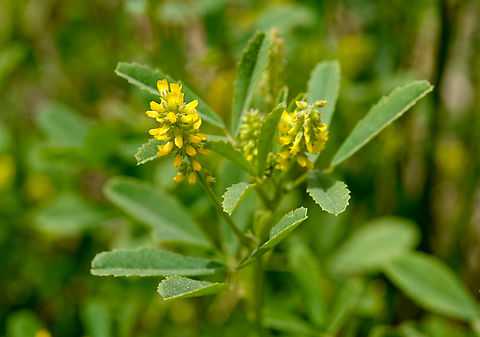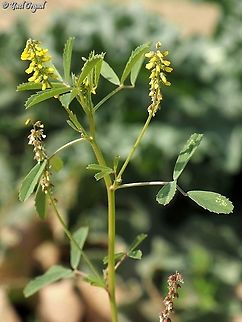
Appearance
It is an annual or biennial herb from 10 to 50 centimetres in height, with yellow flowers. Similar to "Melilotus altissima" Thuill. in general. The flowers are 2 – 3 mm long they produces a hairless pod of similar length.
Naming
Common names in English include sweet clover, sour clover, Indian sweet-clover, annual yellow sweetclover, Bokhara clover, small-flowered sweet clover, common melilot, small-flowered melilot, small melilot, sweet melilot, Californian lucerne and Hexham scent. In Australia and New Zealand, where it is naturalised, it is sometimes called King Island melilot or King Island clover.Distribution
It has a wide native distribution, ranging from Macaronesia and northern Africa, through Europe, and into temperate and tropical Asia. It is naturalised throughout most of the rest of the world, including the United Kingdom, the United States, South America, Australia and New Zealand.Habitat
It has a wide native distribution, ranging from Macaronesia and northern Africa, through Europe, and into temperate and tropical Asia. It is naturalised throughout most of the rest of the world, including the United Kingdom, the United States, South America, Australia and New Zealand.Uses
It is used as a source of nectar for bees, as forage, and as a soil improver. It is also used in folk medicine. It is poisonous to some mammals, and is a potential seed crop contaminant.In Pakistan, Melilotus indicus is called sinji, which is used as a vegetable. It has many medicinal uses. It has antioxidant properties. It also has alpha-amylase inhibitory activities, because of which it may be useful for type 2 diabetes.
References:
Some text fragments are auto parsed from Wikipedia.